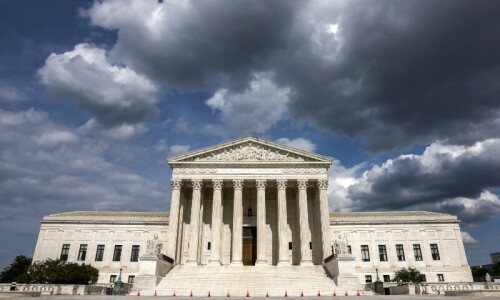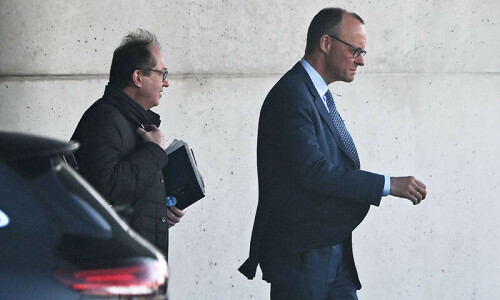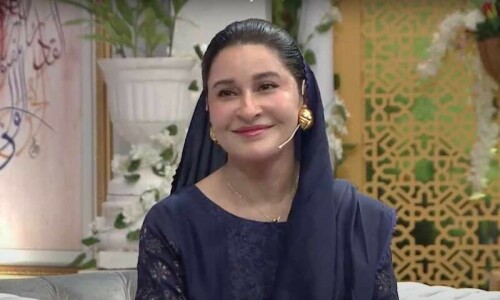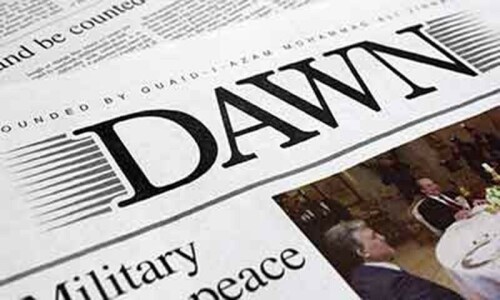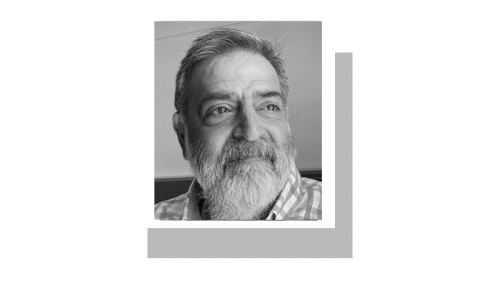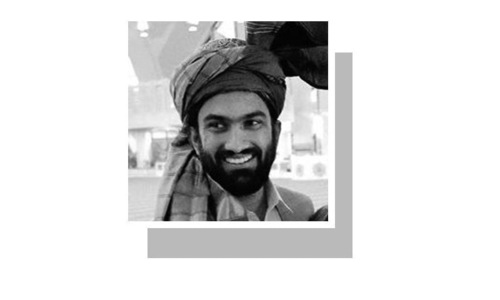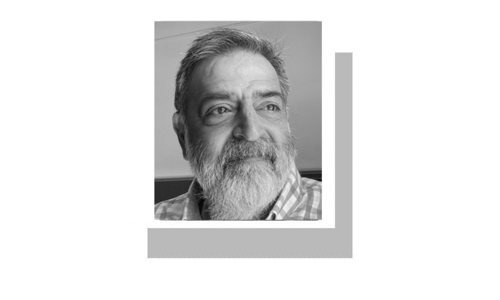Supreme Court Justice Ijazul Ahsan on Tuesday said that the amendments made to the National Accountability Bureau (NAB) laws were carried out only to benefit the very lawmakers that legislated on it.
After coming into power in April, the incumbent PDM government had passed the National Accountability (Second Amendment) Act 2022 — a move that was heavily criticised by PTI, who termed the legislation an attempt to turn the anti-graft watchdog into a “toothless” organisation.
In June, former prime minister Imran Khan challenged the amendments to the NAB ordinance. The petition stated that the amendments will “virtually eliminate any white-collar crime committed by a public officer holder.”
A three judge-bench comprising Chief Justice (CJ) Umar Ata Bandial, Justice Ahsan, and Justice Mansoor Ali Shah heard the petition today.
At the onset of the hearing, CJP Bandial said the amendments to the NAB bill were made by an “incomplete” National Assembly (NA). However, he said that there was no law on whether or not an incomplete assembly can legislate.
“More than half of the MNAs had boycotted the assembly as part of a political strategy,” the chief justice recalled.
PTI chief’s lawyer Advocate Khawaja Harris said that people will approach the court if the executives do not do their job.
As the hearing continued, Justice Ahsan remarked that amendments to the NAB bill only benefitted those who legislated on it.
“An entire political party functions according to the directions of a few people,” he said. “Following the directions only benefits them.”
“In such a situation, should the judiciary watch the spectacle unfold with its hands and feet tied?” the judge asked.
Justice Ahsan said that the NAB amendment bill was rushed through without holding a debate. “If the intention behind the amendment is not right, there is no need to find out anything else.”
CJP Bandial said no attempts were made to fix loopholes in the system. “It is the parliament’s job to legislate and implement laws that fix the system’s loopholes,” he said, adding that the law was not being followed during the executives’ decision-making.
He said the government could not root out corruption in some projects due to the system’s weakness.
“Many people’s businesses were shut down due to misuse of the NAB law,” the chief justice said. “There should be no forgiveness for corruption.”
At one point in the hearing, Justice Shah said “corruption is wrong and there is no doubt that corruption should not take place”. “The question is how should corruption be dealt with?” he said.
To this, Advocate Harris replied: “Bringing an end to corruption is the executives’ job. The judiciary interferes when the executives can’t do their job.”
Later in the hearing, the chief justice said that quite a few facets had also seen improvements in the country. “The media is also free in Pakistan and brings forth the truth.”
At this, Advocate Harris said: “The Pakistan media ranks at number 157 out of 180 in world ratings.”
Justice Shah remarked that according to corruption rankings, Pakistan was on the same number as it was before the NAB amendment bill.
“When new rankings are released after the NAB amendment bill has passed, Pakistan will move 100 places down on the corruption index,” Justice Ahsan added.
Ex-PM Imran’s lawyer told the court that the term “regulatory capture” is used when self-serving legislation is passed.
Here, CJP Bandial inquired if the amendments to the NAB law can be termed as “parliamentary capture.”
Advocate Harris told the judge that the term “parliamentary capture” is used in another sense.
Subsequently, the hearing was adjourned till Wednesday (December 14).
Earlier in July, the federal cabinet passed, the National Accountability (Third Amendment) Bill, 2022, with fresh legislation aiming to restrict the watchdog’s role in corruption cases of over Rs500 million and taking away the president’s authority to appoint accountability court judges.
The joint session of the Parliament on June 10 approved, the National Accountability (Second Amendment) Bill, 2021. The bill was opposed and returned unsigned by President Arif Alvi before it became law.

















